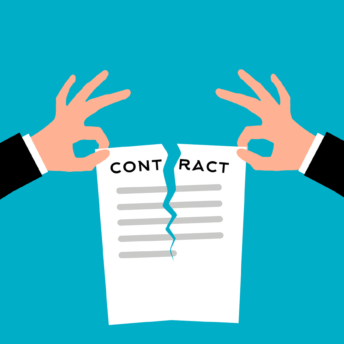Next of kin is a term used to describe your closest living relative or relatives. You may be asked to name someone as your next of kin if you’re in hospital, or if you’re taking part in an activity with a certain level of risk associated with the activity.
In the event of someone’s death, next of kin may also be used to describe the person or people who stand to inherit the most. This is usually the spouse or civil partner, but it could also be their children or parents in certain circumstances.
The definition of next of kin often comes up if somebody hasn’t written a Will and passes away. When this happens, the rules of intestacy come into play and the estate of the deceased will be shared amongst their next of kin. The question then arises as to exactly who is the next of kin. In this article, who is the next of kin when someone dies, we take a look at these issues in more depth and describe the mechanics of the process involved.
Free Initial Telephone Discussion
For a free initial discussion on how we can help you deal with an estate left without a Will, get in touch with us today. We will review your situation and discuss the options open to you in a clear and approachable manner. Early expert legal assistance can help ensure you understand your rights with regards to the lack of a Will and also avoid the stress of dealing with these issues on your own. Simply call us on 0345 901 0445 or complete our online enquiry form and a member of the team will get back to you.
What are the rules of intestacy?
When someone dies without leaving a will, their next of kin stands to inherit most of their estate. The order of who inherits what and how much they are given is governed by what is known as the rules of intestacy
In order of priority, this is who inherits under the rules of intestacy:
- Spouse or civil partner The spouse or civil partner of the person who died inherits the first £270,000 of their estate, plus half of everything over that value.
- If the person who died was survived by their spouse or civil partner and their estate is worth more than £270,000, their children get an equal share of everything over £270,000. If there is no living spouse or civil partner, the entire estate is divided equally between their children.
- Grandchildren If one of the children has already died, their share is divided equally between their own children (the grandchildren of the person who died).
- Parents
- Brothers and sisters
- Half brothers and half sisters
- Aunts and uncles
- Children of aunts and uncles (cousins)
Is there a legal definition of “next of kin”?
Next of kin generally refers to the person who has, or had, the closest relationship with a person. In the United States, next of kin relationships are established in law – with a surviving spouse at the top of the list – but there’s no next of kin status defined in UK law, so this can be open to interpretation.
As such, who would be defined as next of kin is generally something that families try and work out amongst themselves. However, trying to establish this when someone has died can be hugely stressful and upsetting so it is a good idea for this conversation to be had at some stage of your, or other family members, lives.
In the UK, as far as the NHS is concerned, next of kin on a hospital form means the person nominated by the patient, or identified as the person who is closest to them.
If someone is well enough to identify their own next of kin on the hospital admission form, this can be anyone they choose. It could be a partner or close friend and not necessarily their closest blood relative.
If someone is unconscious or unable to respond, the hospital may define next of kin on the basis of the family members they are able to trace at the time.
Who cannot inherit when there is no Will?
The following people have no right to inherit where someone dies without leaving a will:
- unmarried partners (sometimes wrongly called ‘common-law’ partners)
- lesbian or gay partners not in a civil partnership
- relations by marriage
- close friends
- carers
However, even if you can’t inherit under the rules of intestacy, you might be able to apply to court for financial provision from the estate.
How we can help
We have a proven track-record of helping clients draft their wills and advise upon estates governed by the rules of intestacy. This includes relatively straightforward estates and also complex estates where assets are held all over the world. We will guide you through all the necessary legal due diligence in a comprehensive and timely manner. We firmly believe that with the right solicitors by your side, the entire process will seem more manageable and far less daunting.
How to Contact our Wills and Probate Solicitors
It is important for you to be well informed about the issues and possible implications of writing your Will or if you find yourself involved in an estate left without a Will. However, expert legal support is crucial in terms of ensuring your final wishes are met as you would want them to be or in guiding you along the path of intestacy.
To speak to our Wills and Probate solicitors today, simply call us on 0345 901 0445, or allow a member of the team to get back to you by filling in our online enquiry form. We are well known across the country and can assist wherever you are based. We also have offices based in Cheshire and London.






Leave a Reply
You must be logged in to post a comment.